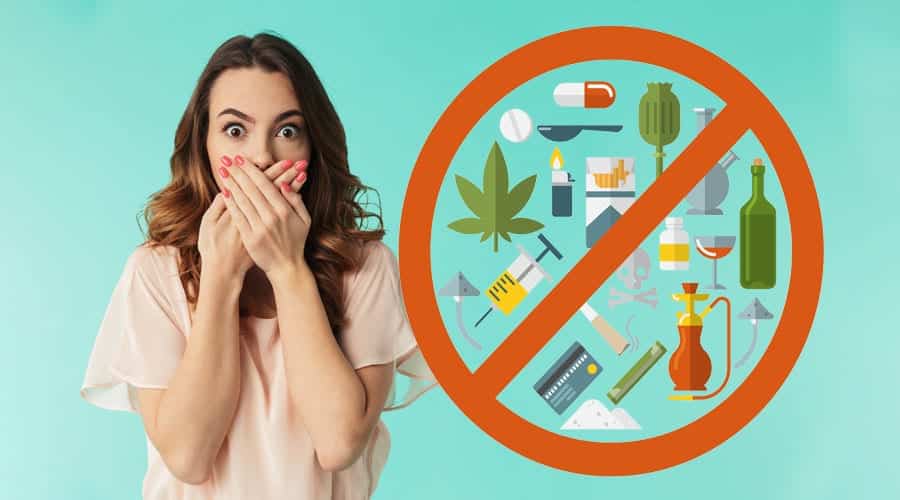There are certain things to expect within the first thirty days of being sober. Of course, you’ll probably experience physical withdrawal symptoms. You’ll also likely have some typical cravings. But what about all the other stuff? What about the stuff that no one warns you about?
As it turns out, more than what you might expect happens when you first stop drinking or using drugs. Some of these things are great, while other things? Not so much. Either way, recovery is a worthwhile journey to pursue.

Most of all, Hotel California by the Sea wants you to know that you aren’t “different” or “weird” if you’re experiencing, or have previously experienced, any of these early-sobriety symptoms. Don’t worry! Know that it’s totally normal to go through these things when you first get clean and sober, and they’ll pass soon enough. For now, read on and discover some frequent social, emotional, and physical changes you can expect within your first 30-90 days sober (at least)!
1. Drinking And Using Dreams
Addiction seems to haunt us in our sleep (as though cravings, while we’re awake, isn’t enough)! To many addicts and alcoholics who first get sober, these dreams may come as a surprise. However, using and drinking dreams are a common occurrence for people in early recovery.
No matter how many months sober you have, you could experience drinking and using dreams. These dreams (or nightmares) might make you feel anxious when you wake up, and even prompt cravings.
Addiction is, at its core, a quite obsessive-compulsive type of disease. Sometimes, unfortunately, dreams seem to work as a mental “detox” while we’re changing lifestyles from addict to recovering addict. Eventually, however, these dreams will likely fade.
2. Major Mood Swings
Another common occurrence in early sobriety is significant mood swings. A lot of people experience mood swings while they physically and mentally detox from drugs and alcohol.
Mood swings are common in early sobriety because many addicts are not used to coping with their emotions as a sober person. Experiencing any feeling is stressful at the beginning of one’s recovery journey.

Some recovering addicts and alcoholics may also have underlying mental conditions, such as Bipolar Disorder, that can cause mood swings. They may have previously been self-medicating with drugs or alcohol.
Sober people eventually need to face their unstable moods and receive proper treatment for any mental illness.
Over time, mood swings should level out, and people in recovery generally become more stable.
3. Your Friendships May Change
Sober friends and a strong support network of like-minded peers are a cornerstone of staying sober.
While you change your relationship with alcohol and other drugs, you may also have to change your relationships with friends, family members, and other loved ones.
To achieve long-term sobriety, you may need to distance yourself from old drinking buddies or using partners.
Some old friends may support your sober goals, while others may not understand them or resent them. Either way, you may lose some friends, while other friendships may transform.
4. Your Weight May Change Or Fluctuate
Alcohol and drugs can cause someone to lose – or gain – a significant amount of weight. Amphetamines tend to suppress peoples’ appetites, for example. Sometimes, excess alcohol can cause bloating and weight gain.
Getting sober may cause someone to lose weight – or even gain some pesky pounds!
Food can also serve as an escape.
For those with underlying eating disorders, getting sober can be scary. Sometimes removing one escape or obsession will lead the focus onto another. However, this is also normal, and as long as someone seeks the proper treatment for this issue while also tackling their addiction recovery, the weight fluctuations will pass.
5. You Might Feel Pretty Awkward
For lack of better terms, you’ll probably feel awkward when you first get sober. Many people use drugs and drink to ease their social anxiety or to feel more comfortable in their skin. Feeling uncomfortable or socially anxious at the beginning of recovery – and beyond – is entirely reasonable.

Honestly, feeling awkward is a good thing when you first get sober. If you’re feeling awkward, it means that you are, indeed, meeting yourself for a second time. With a strong support group, you’ll inevitably overcome some of that social anxiety and awkwardness. Recovery is a never-ending journey of growth and learning. It involves continuous development and self-reflection for (ideally) the rest of your life.
As people spend time growing in sobriety, these things will eventually cease from happening (or at least lessen in prevalence). However, it takes time and patience to achieve any growth. Sobriety is a challenging, long-term, and ever-evolving process – but it’s worth it.
Inpatient treatment can help if you’re suffering from a substance use disorder or having problems with heavy drinking and drug use. Reach out to our addiction professionals today if you have any questions about how recovery will improve your life.

